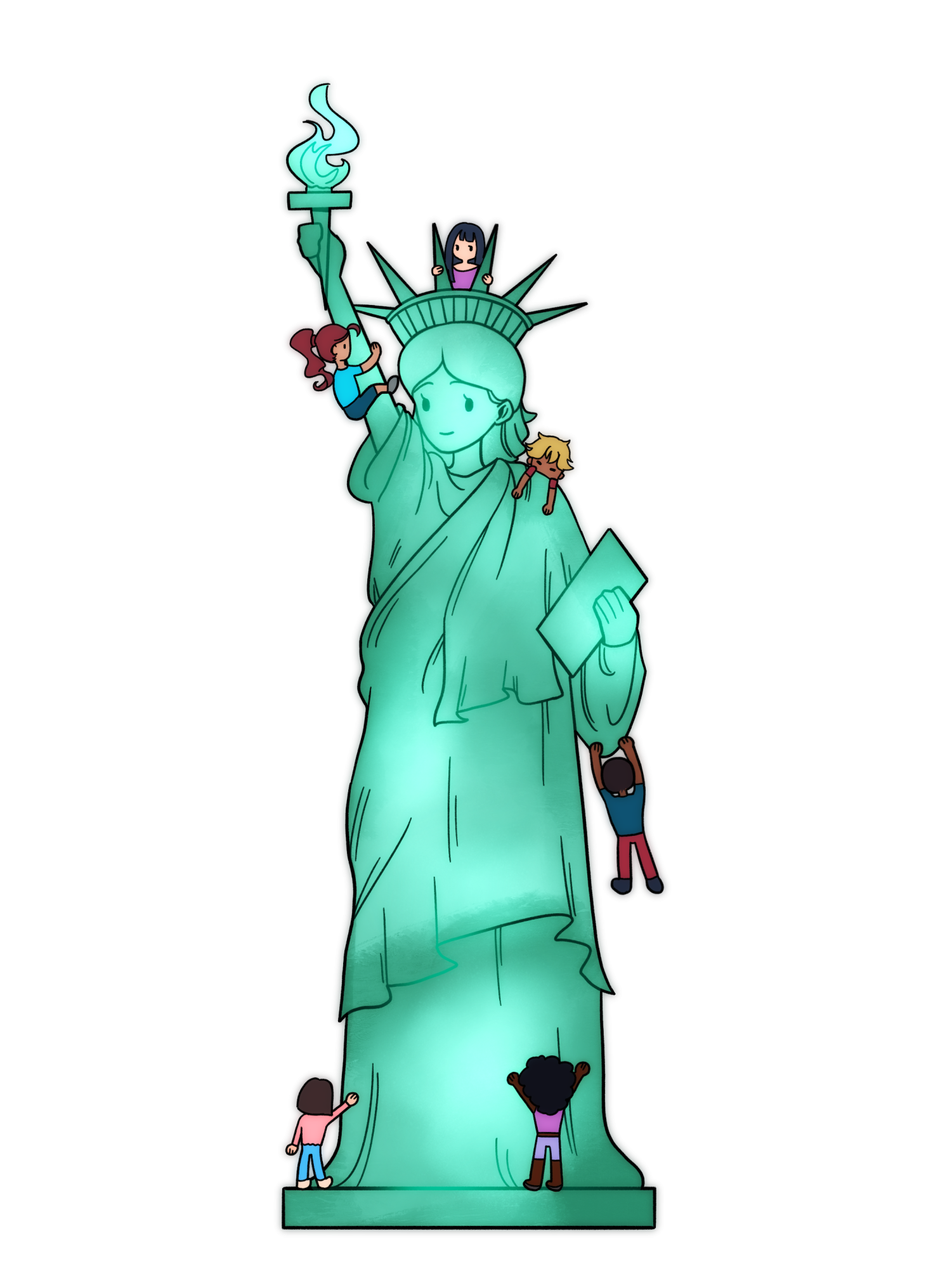In a time where younger Americans are increasingly pursuing unconventional pathways such as trade school or seeking opportunities overseas, students may find themselves straying from the quintessential concept of the American Dream — the notion of a singular path to success.
Though the American Dream suggests an ideal life for all, sophomore Motoko Iwata said each generation deals with events that make them doubt this Dream, such as questions about whether America is unified and whether it represents equal rights for everyone.
“The general (belief) is that the American Dream is what our country is founded on,” Iwata said. “(If) we begin to lose faith in the American dream, that’s going to be really dangerous for American democracy.”
There can be negative repercussions to the decline of the American Dream, too, and US government teacher Ken Tinsley said pessimism towards the American Dream can spread extreme ideas or endanger America’s democracy.
“When you have pessimism as we’ve seen in the past, you’re less empathetic,” Tinsley said. “You’re less understanding or willing to accept that things might be different from other people. You’re more receptive to … extreme ideas: burning the system down, xenophobia, and racism, and we’re seeing that play out now around the globe.”
But Iwata said Palo Alto’s diverse community has helped many students feel encouraged by seeing the American Dream come to life in their parents.
“Palo Alto uniquely has two things: immigrant parents who have come here to seek opportunity and who have gained success,” Iwata said. “More importantly, we come from families who have achieved that American dream. While that’s a really blessed thing, I’ve also seen it put more pressure on my peers to achieve that success.”
Despite these successes, Tinsley said many minority groups face challenges from society related to the idea of the American Dream. He also said the decrease in quality of life in recent generations have contributed to the declining support of the American Dream.
“If you get good grades, go to college, have a degree, get a nice paying job, you can then settle down, buy a house and have your 2.12 kids with your partner,” Tinsley said. “That’s the kind of model that we expected to see during the baby boomer generation. But when I was in college (as a millennial), my professor said, ‘You’re going to be the first generation where your quality of living is actually less than your parents.’”
Sophomore Teresa Wang agrees and said the American Dream is more relevant to her parents than herself.
“The American Dream was something that was made a long time ago in different circumstances,” Wang said. “For most people (nowadays), doing something like buying a home or having a family is pretty unachievable. So (part) of the American Dream doesn’t really apply to me.”
Wang said people of the younger generation have also begun to deviate from the typical “American” lifestyle to a manner of living that evokes more personal happiness.
“We’re focusing a lot less on having families and a lot more on personal happiness,” Wang said. “There’s a lot more people who live alone, with pets or with a partner, and there are a lot more people nowadays who are reconsidering having children. We’re all collectively aware of the emotional damage and weight that parents have (passed down) to us, and a lot of people don’t want to bring that same weight onto children that they would have.”
Wang also said more students are starting to reject the idea of having to fit into a singular lifestyle and they have become a lot more tolerant of others.
“(Changes in societal views) play a role in how we think about the American Dream, because if you don’t really believe in America as a sort of concept, then it makes no sense to follow that societal standard,” Wang said.
Wang also said students, in Palo Alto especially, see these changes because many are pushed to go beyond expectations.
“The competitive environment means that there’s a lot of people who might not be able to achieve (Paly’s) sort of standard of getting into specific colleges,” Wang said. “It might make a lot of people reconsider their pathway after high school, like going to trade school instead or going into work right out of high school.”
Additionally, Wang said the younger generation is more open to considering going into the workforce instead of a four-year college.
“Another thing is people are focusing a lot less on having a conventional job,” Wang said. “A lot more people are not trying to fit into a mold anymore. More people want to do more things in their life than just work.”


